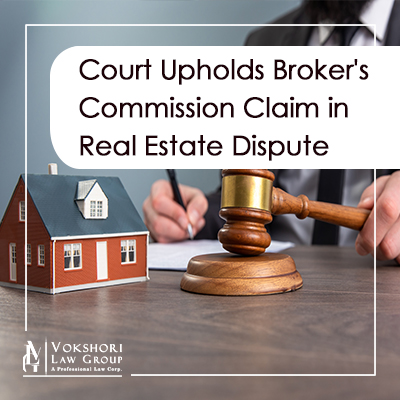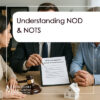
In Chan v. Tsang, the California Court of Appeal examined whether a buyer’s broker can recover a commission from a buyer who unjustifiably refuses to complete a real estate transaction. The court determined that the buyer was responsible for paying the broker $100,000, the commission that would have been earned from the seller if the buyer had fulfilled the purchase agreement.
Tsang (the Buyer) expressed interest to Chan (the Broker) in purchasing commercial property. The Broker introduced the Buyer to a property owned by Mountain View Center Associates (the Seller). The Seller accepted the Buyer’s offer of $4 million, with the Broker’s commission set at $100,000.
However, the Buyer later backed out of the deal without any valid reason. This led to lawsuits between the Seller, the Buyer, and the Broker, who also filed complaints against each other. The Broker sought the full $100,000 commission from the Buyer. The Seller received a $20,000 judgment against the Buyer, which was the deposit amount specified in the liquidated damages clause. This judgment was upheld on appeal and fully paid. The trial court awarded the Broker $10,000, half of the Seller’s $20,000 damages. Both the Broker and the Buyer appealed this decision.
The Court highlighted that typically, the seller is responsible for paying the broker’s commission. However, under certain conditions, a broker can recover from a defaulting buyer. If the broker is hired by the buyer, finds property for them, and the seller agrees to sell at the offered price, the buyer implicitly agrees to complete the transaction, allowing the broker to earn the commission. If the buyer defaults, the broker can claim the full commission based on the implied promise to complete the deal. Additionally, the court noted that the broker could be seen as a third-party beneficiary of the agreement between the buyer and the seller (see Donnellan v. Rocks, 22 Cal. App. 3d 925, 99 Cal. Rptr. 692 (1972); Tanner Associates, Inc. v. Ciraldo, 33 N.J. 51, 161 A.2d 725 (1960); Herman v. Savage, 17 Cal. App. 2d 238, 61 P.2d 1195 (1936)).
Applying these principles, the Court found the Buyer liable for the Broker’s commission. The Buyer had engaged the Broker, who found suitable property, and the Buyer agreed to purchase but then defaulted without cause. Thus, the Buyer was responsible for the commission that would have been paid by the Seller if the transaction had been completed. The Broker’s right to recover was based on the Buyer’s breach of the implied promise to complete the purchase or, alternatively, on the Broker’s status as a third-party beneficiary of the buyer-seller contract.
The Court rejected the Buyer’s argument that the commission amount should be limited by a clause in the seller-broker agreement. It acknowledged that while brokers typically seek commission recovery from the seller, they can pursue the buyer when a prior relationship exists. Therefore, the Court adjusted the damages and remanded the issue of attorneys’ fees and costs for further consideration.
Conclusion
The Chan v. Tsang case underscores the potential liabilities buyers face when they back out of real estate transactions without cause. It highlights that brokers, under certain conditions, can recover their commissions from defaulting buyers. This ruling serves as a critical reminder for buyers to understand their commitments and for brokers to be aware of their rights when agreements fall through.






